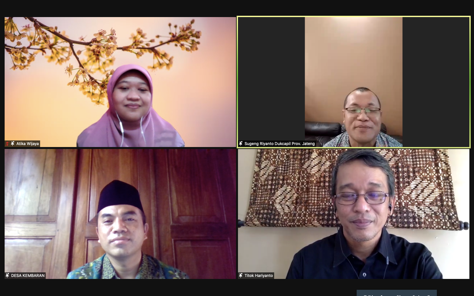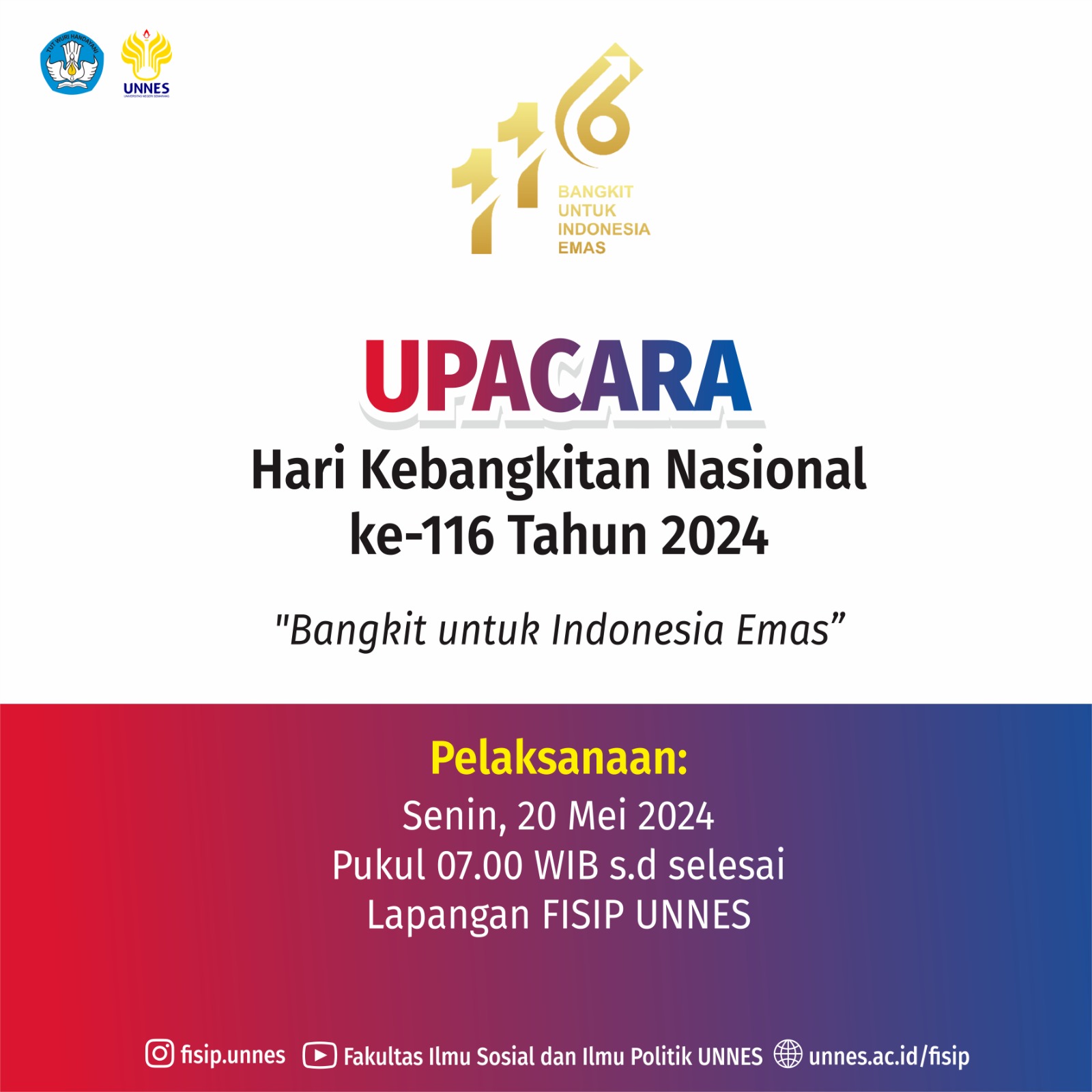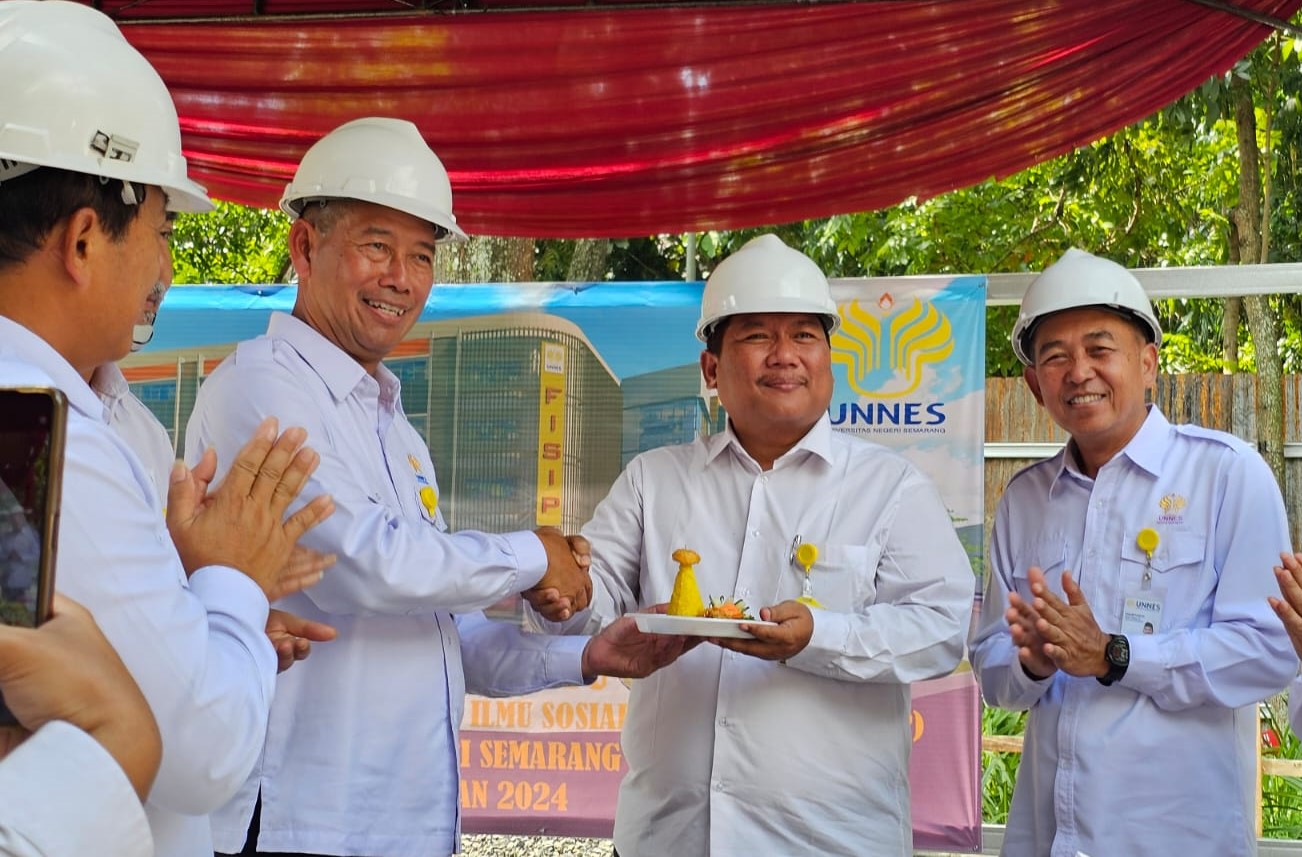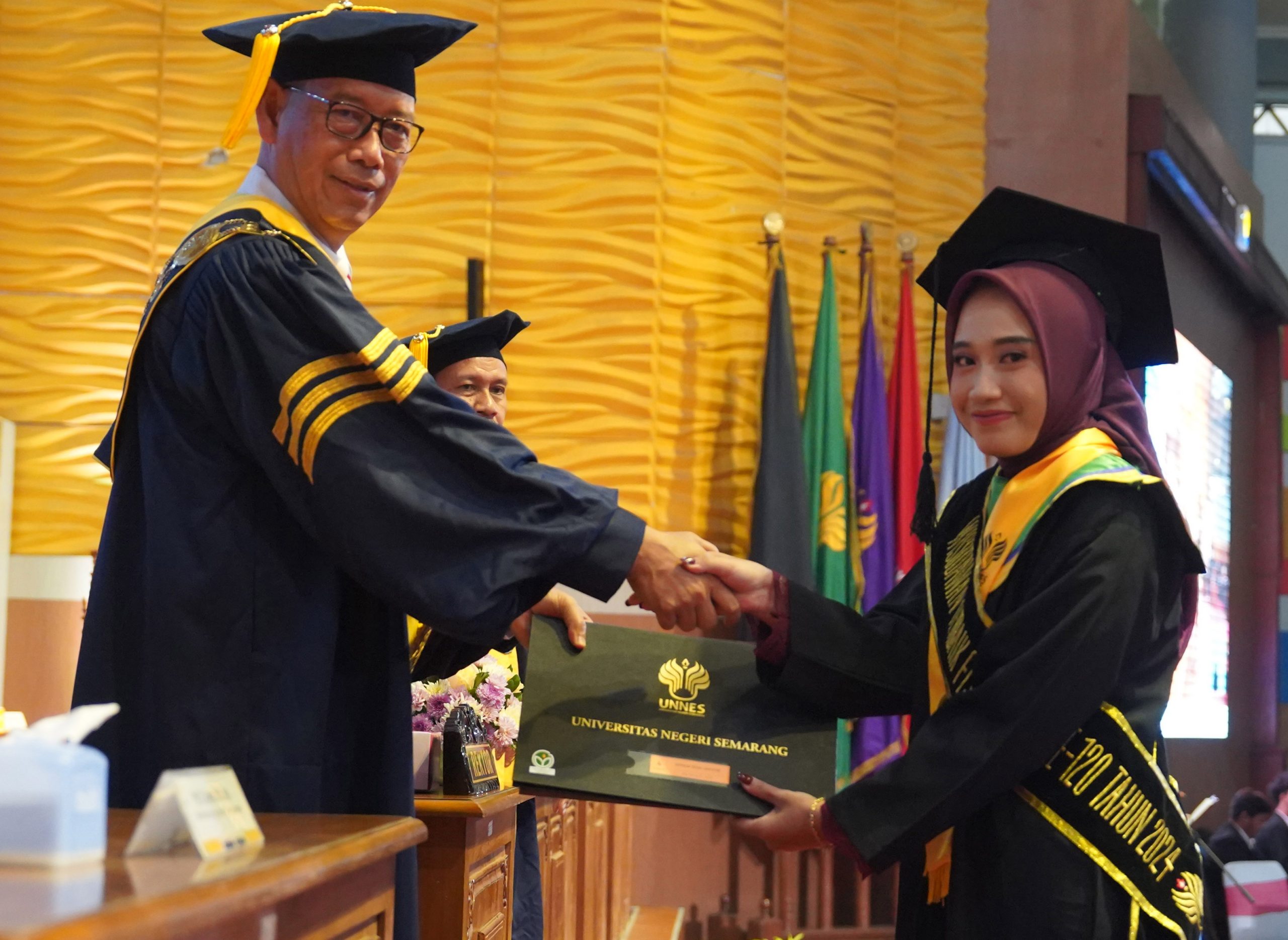Semarang, FIS UNNES. Paparan virus terus menyebar hingga menyentuh wilayah-wilayah perdesaan. Kondisi sosial ekonomi dan pendidikan di desa yang sangat beragam, dengan tingkat kerentanan persebaran kasus yang bervariasi menjadikan penanganan pandemi covid di tingkat desa menjadi semakin komplek. Kemendes PDTT gencar menyalurkan Dana Desa melalui empat program unggulan dalam penanganan Covid-19 di desa, yaitu Desa Aman Covid-19, Bantuan Langsung Tunai (BLT), Padat Karya Tunai Desa (PKTD) dan Dana Desa untuk Kegiatan Pembangunan Desa di Luar Skema PKTD. Namun tentu saja kebijakan tersebut perlu direspon dan disinergikan secara kontekstual dengan mempertimbangkan kondisi riil di masyakat desa. Oleh karena itu perlu adanya pemahaman bersama tentang kondisi aktual di tingkat desa.
Merespon situsi tersebut PUSAT KAJIAN DAN PENGEMBANGAN MASYARAKAT DESA (PUSKAMADES) FIS UNNES menyelenggarakan FGD Resiliensi Desa Dalam Menghadapi Pandemi Covid-19 yang dilaksanakan secara virtual menggunakan fasilitas zoom meeting, Rabu, 1 September 2021.
FGD tersebut untuk menjawab beberapa pertanyaan yang muncul berkaitan dengan pengalaman desa menghadapi pandemi tersebut, diantaranya Bagaimana ketahanan desa dalam menanggulangi dan mencegah persebaran covid 19?, Bagaimana pemerintah di tingkat desa mensinergikan kebijakan dari pusat dengan kekuatan-kekuatan setempat untuk dalam menghadapi pandemi?, dan Apa saja permasalahan yang dihadapi dan bagaimana mengatasinya?.
Narasumber dalam kegiatan tersebut adalah Ir Sugeng Riyanto, Kepala Dispermades Dukcapil Jawa Tengah, Titok Hariyanto SIP dari LSMAtmawidya Alteras Indonesia, dan Mu’rawan Akhyar SPd, Kepala Desa Kembaran, Candimulyo, Magelang. FGD dimoderatori oleh Dr. Atika Wijaya.
Diskusi berlangsung dengan sangat mengalir. Informasi dan pengalaman dari narasumber disampaikan dengan baik. Ir. Sugeng Riyanto, Kepala Dispermadesdukcapil menyampaikan tentang program “jogo tonggo” yang diimplementasikan sampai ke tingkat RT dan RW cukup efektif dengan membentuk satgas Jogo Tonggo.
Pengalaman di tingkat desa disampaikan oleh Mu’rawan Akhyar, S.Pd, Kepala Desa Kembaran, Kecamatan Candimulyo, Kabupaten Magelang. Menurutnya, penanganan terhadap pandemi mengalami banyak tantangan dan hambatan aspek Kesehatan, sosial, dan ekonomi. Banjir informasi terkait dengan persebaran virus, distribusi bantuan, dan tingkat kesadaran masyarakat yang beragam menjadikan penanganan covid di tingkat desa menghadapi persoalan di berbagai aspek.
Titok Hariyanto, dari LSM Atmawidya Alterasi Indonesia menyampaikan pengalamannya dalam memperkuat ketangguhan desa sebagai benteng terakhir menghadapi pandemi. desa perlu dikuatkan dengan menyiapkan pondasi ekonomi masyarakat yang kuat di masa datang.
Ketiga narasumber juga menyoroti terjadinya banjir informasi yang sering kali mengakibatkan kebingungan dan gejola di masyarakat. Hal itu akibat banyaknya berita hoax sehingga proses pelaksanaan program mendapatkan respon yang simpang siur di masyarakat.
Dekan FIS UNNES, Dr Moh Solehatul Mustofa, MA, dalam sambutan pembukaannya menyampaikan bahwa perguruan tinggi punya peran dan andil yang besar untuk turut terjun dalam memajukan dan membangun desa. FIS memiliki peran strategis secara keilmuan untuk mengaplikasikan ilmunya dalam memecahkan persoalan-persoalan yang muncul di Desa. Ke depan perlu sinergi yang lebih kuat, dalam membangun jejaring dengan stakeholder terutama dalam mengimplementasikan program MBKM Merdeka belajar, kampus merdeka.




